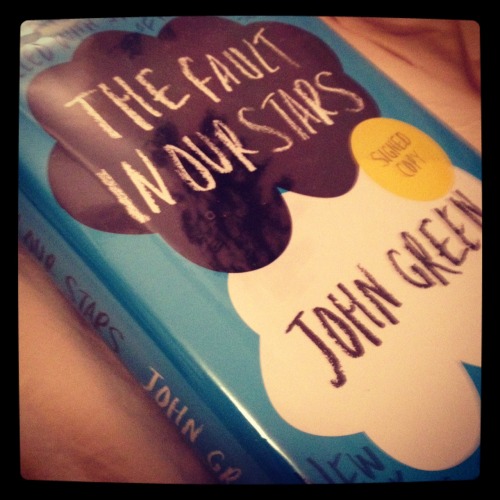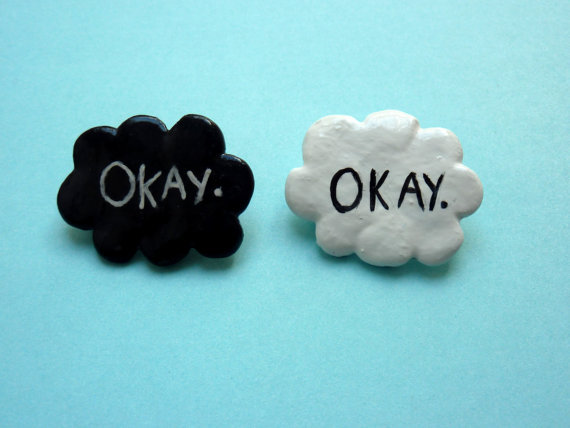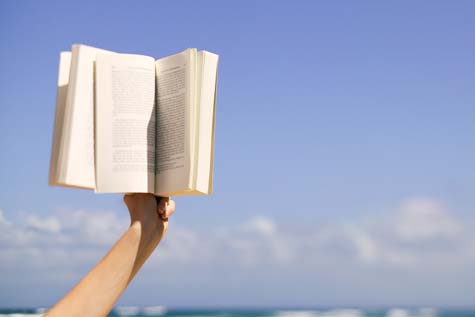My graduation is like, 5 days away, and in the spirit of grad I wanted to do some sort of "looking back" post. My plan was to scrounge up some old journal entry of mine and analyze how much I've changed. However, I don't really write a lot of journals. I basically write journals when I feel really emotional about something (which always seems to happen when I stay up too late reading emotionally intense books, so...), and when I'm on vacation. So... there goes that idea.
Also, it's really, really hard to summarize yourself in a couple of paragraphs. I wrote a letter to myself when I was 12 that I'm supposed to read when I'm 22, and I'm pretty sure the gist of it is "I'm 12 right now and these are my friends: [list of friends]". I have no idea what I would put in a single letter that could give future-me an accurate picture of present-me. Do I talk about my friends, what I like to do, my beliefs? What?
Anyway... while I don't have an old, comprehensive journal entry to analyze, I do have lots of old journals that I've written random things in over the years (very random things) and some of the things were so random I just couldn't help but laugh at how crazy of a kid I was. So I thought I'd share some of those things with you.
Oh, and just a note, whenever I'm quoting from one of my notebooks, I quote exactly - spelling mistakes and all. Just so you know that I actually CAN spell.
TIMELINE OF MY CHILDHOOD IN NOTEBOOKS:
2001: 7 years old
The above journal is from the first diary I had (and the last). The first entry here is talking about how much I dislike my cousin, because she said she couldn't read my writing. (You know what, 7-year-old Alyssa? I can't read your writing either). Then later in life I went back and crossed out "mean" and wrote "nice", but then even later I ended up going back and crossing out "nice" and re-writing "mean and nasty" in red pen.
If anyone's interested, I get a long just fine with my cousin now. ;)
2002: 8 years old!
This notebook was called a "Slam Book" and it had questions at the top of some of the pages that were like "Your best excuse for turning in your homework late is..." and so on. Some of the questions my eight-year-old self deemed to answer were:
The dumbest love note you ever received was from... noneone
The flirting technique that always works for you is... tikling my back
If you had to marry a teacher from your school you would choose... Mrs Turner or Ms Mackinnis
(Reading these questions makes me wonder how my mother thought this notebook was appropriate for an 8-year-old...)
Also, the page shown in the picture above is a list of my friends on the left and then "how they act" on the right side. I'm happy to say that I have now succesfully grown out of having rating systems for my friends... :D
probably around 2004, 8-10 years old:
So I found a song that I am sorry to say that I wrote. It goes like this:
Friends forever
we love and care for who they are
and who they will be
we're always together
Friends will save us from the pouring sadness
and the rock hard hearts
They'll lift spirits and dance in the sky
AUGGH it's so bad!!! "Pouring sadness"!?!? "Dance in the sky"!?!?! Obviously I was a master at imagery back then... haha. Thank goodness I had little to no aspirations to become a songwriter...
2004, probably 9 years old:
So my 9-year-old self decided to make up some jokes and write them down. They are... embarassing.
Lucy: Sniff, sniff.
Teacher: Have you caught a cold?
Lucy: No, it caught me.
Herbert: How do you add 2+2?
Corey: to what?
Herbret: each other
Corey: Swich places
(WHAT?? This is not only not funny but it makes NO SENSE)
Teacher: Amy, how do you spell zebra?
Amy: e-b-r-a
Teacher: Where's the z?
Amy: On vacation
What I want to know is, HOW did I think any of these jokes were even remotely funny??? Little Alyssa, I do not understand you.
2004: 10 years old
"Arielle, someone at camp, said she had a 'pretend friend' named Eddie. Why I'm metioning this is because I thought 'Why don't I have a pretend friend?' I made one up. I'll tell you about her."
I think it's really funny how my first reaction to finding out about someone else's imaginary friend is not a normal kid's reaction of "wow you are way too old for things like that" but "What? Why don't I have one?" Little Alyssa, you were one strange kid.
2005: 10/11 years old
Excerpt!: "When I read I get so scooped up into my book I hardly know where I am"
"Scooped up"???? I don't think that word means what you think it means, Little Alyssa.
2006: 11/12 years old
When I was in grade six, my family and I went on vacation to Waterton/Glacier National Park, traveling through the U.S. to get there. You know how whenever you visit some landmark, there's signs with information about the landmark around? Well, for some reason I thought it would make sense to COPY THE ENTIRE SIGN. And there are like, 4 pages of signs I copied on this trip. WHY, 12-year-old Alyssa, WHY???
Oh, and I also found a list of 62 questions in one of my notebooks, which I'm guessing I probably thought up to ask my dad when he said goodnight to me to make him stay longer. You can read the whole list of 62 here, if you want.
So, now you know what I was like as a kid, and you can see that I am still pretty weird, just in different ways. ;) (Although I like to think I have a better sense of humor now...)
What crazy things did you do as a kid? Oh, and if you want to hear more about me and my weird family you can follow me on twitter, @AlyssaSherlock. :)
Oh and here's a picture of me when I was six (the scrape on my nose is because I fell off my bike):
Have a great summer!
From,
me & Little Alyssa


































